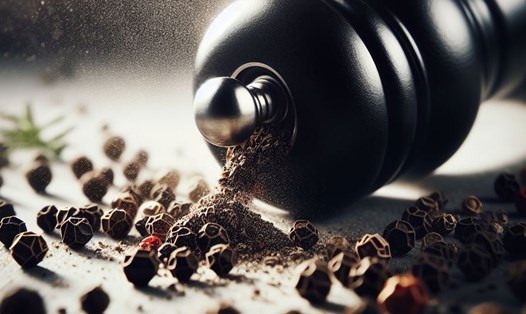Ms. Rupeet Kaur, nutritionist, founder and CEO of Diet Ryt Nutrition Center (India), said that black pepper is a popular spice used worldwide, bringing a characteristic spicy flavor to dishes.
However, like some foods, black pepper faces the situation of mixing ingredients of unknown origin to increase profits.
According to Rupeet Kaur, mixing chemicals and impurities in pepper has caused many health risks, including heart failure, kidney and liver dysfunction.
Here are common impurities in mixed black pepper:
Papaya seeds
Papaya seeds, when dried, have a very similar shape and color to black pepper, making them easy to mix together. Papaya seeds are often used as a replacement for pepper because they are cheap. To identify it, you can put pepper or pepper powder in a cup of clear water. Pepper will settle to the bottom of the cup, while papaya seeds will float on the surface.
Mineral oil
Mineral oil is often coated with pepper to create shine and increase weight, making pepper look more attractive. However, mineral oils are very harmful to health. For inspection, add the pepper powder to a glass of water and stir well. If you see the oil floating on the surface, it means that pepper has been mixed with mineral oil.
Sawing soil
Saffron is mixed into black pepper powder to reduce costs and increase profits. Saffron fat has a color similar to pepper powder but does not have the characteristic spicy flavor of pepper. To identify it, you can add pepper powder to a glass of water. The saffron will float on the water while the pepper powder will settle to the bottom of the cup.
Lead coating
The lead coating is often used on young pepper to create a color like fully ripe pepper, making the product look more attractive. However, lead is a toxic substance that can have a negative impact on the brain and nervous system. The testing of lead in pepper needs to be done in professional laboratories, it is impossible to check at home.
Tips for buying black pepper
To avoid buying pepper with impurities, consumers should choose to buy from reputable suppliers, not be attracted to cheap or over-excessive discounts.
Check the quality certificates on the packaging or quality control labels and organic labels.
Also, avoid buying pepper products with shiny and eye-catching colors, as they may have been treated with chemicals.









